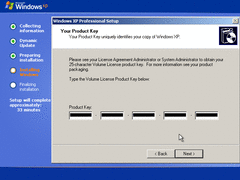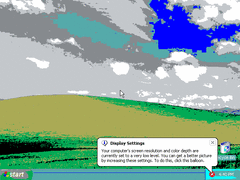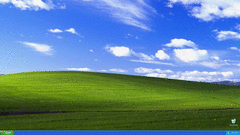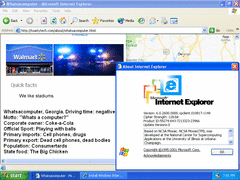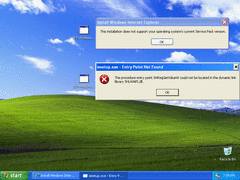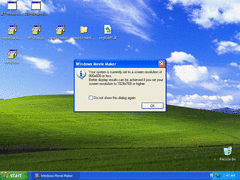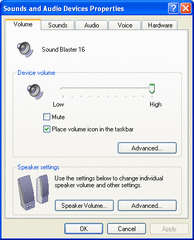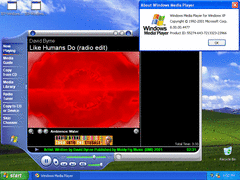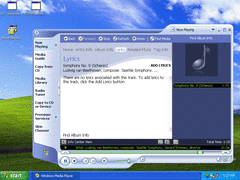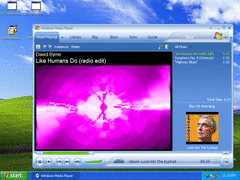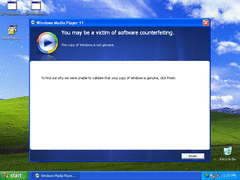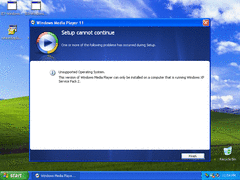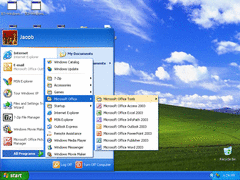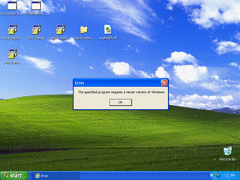Author: Blue Horizon
This is it. The final entry in the Windows XP series. This will be a lot different from previous reviews since we're not gonna explore any new features in XP, but rather see what programs from Microsoft are supported with XP RTM.
We've come a long way since build 2202 and Neptune, and this is only the beginning. Let's start.
The product key screen is slightly different here probably cause I'm using a copy of XP that got sold in stores. But it funcions just the same way.
I also censored the product key I entered since at this point in time Windows XP is not abandonware (Though I did find a key off the web that works for me).
So, here's the deskto- HEY!
Apparently VPC 2007 Additions doesn't work with the RTM of XP (or SP1 if that's the case), so time for a different approach.
Wow, now that's more like it. I used VPC 2004 Additions instead and it works great. Not sure why VPC 2007's Additions doesn't have backwards compatible drivers in the first place.
If you recall Windows XP comes with IE 6, which is already bad enough since IE 6 doesn't want to render most websites except the ones that are blessed by Microsoft.
And no, you can't install IE 7 or 8 on XP RTM either, they make you get Service Pack 2 for that. (Which a lot of programs will seem to need)
Windows XP also shipped with Windows Movie Maker 1.1, which was very limited in what you could do, and wasn't appealing to the average consumer.
When I installed Movie Maker 2.0 and opened it I got this message nagging about my screen resolution being 800x600. At least it doesn't force me to use 1024x768 like Metro "apps" do.
Right off the bat the UI is much more webby on the eyes, and there are links you can click to add pictures and videos to your timeline.
What? We're you expecting an old YTP joke? Yeah, right.
One thing that bugs me about XP is that the volume icon isn't in the system tray by default. Instead you have to go into the sound properties and check the box to put it in the tray where it should be. Just another thing novice users have to put up with.
Windows Media Player 8 is also included. Strange that this version was never released for earlier versions of Windows, probably cause it wasn't that different from version 7. But MS quickly thinked twice.
Media Player 9 works just fine here, and can also be ran on Windows 98/ME and 2000. But there are already other players that can do what WMP 9 can do, and better. The ones I recommend are WinAMP, and XMPlay.
I didn't expect this. Media Player 10 actually runs on XP RTM just fine. This was also the version that was included with XP Media Center Edition. And guess what, it doesn't run on any earlier version of Windows, not even 2000 with SP4!
I'm not sure why MS chose that WMP10 would only run on XP, but it could easily be ported to Windows 2000 just fine. (There's already an unofficial method to install WMP10 on Windows 2000, but it's not that easy to do)
As of this version, the installer checks to see if your installation of XP is "genuine". Is that really nessesary? Who wants to struggle going through Microsoft's tech support hotline just to type in a mile long security number on their screen? We'll thankfully there's a crack to get around this BS.
So after "validating" your copy of Windows or installing a cracked DLL, setup cannot run cause it requires Service Pack 2. Why not just tell me that I need SP2 in the first place rather then telling me my copy of Windows isn't "genuine"?
Office 2003 also runs just fine on XP RTM. At least this time MS had the decency to make this version compatible with Windows 2000 (with SP3 or higher at least).
So how about Office 2007? Nope, you need SP2 to run that. Not that I would want it anyway because of that awful ribbon interface. Unofficially it looks like you can install Office 2007 on Windows 2000 with the kernel extension made by someone in Japan.
So what do I think of Windows XP overall? MS did a nice job merging the multimedia concept of Windows 9x with the stability and rock solid foundation of Windows NT. XP has the longest lifespan of any version of Windows ever, and the OS will officialy loose support in less than a year in April 11, 2019 in the form of POSReady 2009.
I may not like Windows XP as much as others do, but it's still a nice platform for playing old PC games around that era. The RTM wasn't that well recieved for understandable reasons. It wasn't until SP2 that XP started gaining traction. With that said, this is the end of the Windows XP development series. Stay tuned for more GUIs.
